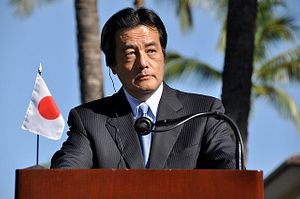The highly contentious deliberation on the security legislation in Japan has entered a final stage. A strong sense of frustration prevails among Japanese public. An opinion poll conducted by the Asahi Shimbun on September 12-13 shows that a whopping 75 percent of the respondents do not think that the debate over the bill has been exhausted. Day after day, the media has been reporting on the protests and demonstrations across Japan against the bill.
Despite all the protests, however, the bill will be passed sooner or later. In the Upper House, where the bill has been under consideration these past two months, the Liberal Democratic Party (LDP)-Komeito ruling coalition has the majority vote. Even if the bill was voted down in the Upper House, it then would be returned to the House of Representatives (the Lower House) where the LDP alone has the two-thirds majority required to override the Upper House’s vote. If the Upper House held onto the bill for 60 days without voting, the bill would be considered approved. With some smaller opposition parties supporting the bill, those who oppose it never had enough votes to block the legislation’s passage.
Prior to the vote, there has been much speculation about the potential negative impact forcing the security legislation through the Diet could have on Prime Minister Shinzo Abe’s government. The Asahi Shimbun poll cited above does indicate that Abe’s approval rating has come down, hovering in the high-30s with the disapproval rating now over 40 percent. Given how unpopular the security legislation is, this number is actually not too bad. For comparison, the approval rating of Prime Minister Noboru Takeshita eventually tanked to 5 percent in 1989, following the introduction of a consumption tax, another highly unpopular policy item.
Instead of the Abe government, it is the Democratic Party of Japan (DPJ) that needs to worry about its viability. Having been ousted from the government in 2012 after three year of disappointing governance, the DPJ has so far miserably failed to leverage public frustration toward Abe to restore the party’s public support. The public dismay in the DPJ is clear: both the Asahi Shimbun poll mentioned above and a Jiji Press poll taken between September 4-7 show that lower approval ratings for Abe have not translated at all into support for the DPJ.
Simply put, the DPJ’s response to the security legislation bill has been utterly disappointing. The DPJ used to pride itself as a political party that could offer a viable alternative, differentiating itself from the Socialists, which often opposed the government’s policies and bills for the sake of opposition. The DPJ’s behavior since the introduction of the security legislation in May, however, is enough to make one believe that its current leadership no longer takes that position. Despite a strong push from some within the party, DPJ president Katsuya Okada and his comrades chose the tactics of blocking the bill at any cost rather than offering alternatives and pursuing compromise. In other words, the DPJ decided to resort to the tactics that were often used by the Socialists during the Cold War.
This tactical decision by the DPJ leadership is remarkable precisely because it was under a DPJ government that Japan began to see growing assertiveness from China. Indeed, the current tensions in the East China Sea began to show tangible signs of deterioration in 2010, after then-Prime Minister Naoto Kan’s government decided to arrest the captain of a Chinese fishing trawler that had rammed into a Japan Coast Guard vessel. Also in 2010, with the DPJ in power, North Korea under Kim Jong-un’s rule engaged in military provocations such as the shelling of Yeonpyeong Island and the sinking of the South Korean corvette, the Cheonan.
In other words, DPJ political leaders, including those in the current party leadership, have been in the position of having to respond to these national security crises and experienced first-hand the inadequacies of the existing legal framework for Japan’s national security policy. Despite such experiences, the DPJ chose to oppose the security bill by narrowing the scope of the debate, rather than by forcing the government to better articulate how the proposed legislation benefits Japan’s national security and why it is necessary to change the existing legal framework today.
Given its experience as a ruling party, DPJ’s current behavior is irresponsible. If their time as the ruling party was disappointing, their current performance as the largest opposition party is in a sense even more disappointing. DPJ party leaders seem to think that, given that the vast majority of the public think the debate over the bill has not been exhausted, the public is on their side. They are very much mistaken, however. As the biggest opposition party in the Diet, the DPJ bears its fair share of the blame for not engaging the ruling party in a debate that resonates with public concern for the bill.
DPJ’s current party leaders need to realize that, by deciding to oppose the bill without offering any counter-proposal, it renounced its position as an opposition that can offer credible and viable alternatives to the voters, thereby further marginalizing itself.
































